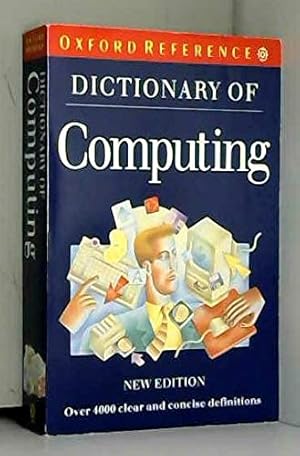Now for available for the first time in the handy paperback Oxford Reference series, the Dictionary of Computing is an authoritative and comprehensive guide of over 4,500 words and terms that span every aspect of computing and related fields. Recently brought up to date to reflect current advances in computer science, the Third Edition offers 550 new entries that provide concise, readable explanations of terms used in microcomputing, networking, and information technology, and pays special attention to new approaches in programming, computer organization and architecture, hardware, and software. Here readers will find everything from "BITNET," "desktop publishing," "hypertext," and "neural net," to "pull-down menu," "transputer," "virus," and "wimp." With its clear language and wealth of instructive diagrams and tables, the Dictionary of Computing should be at the fingertips of every computer user, from beginner to sophisticated professional.
This best-selling dictionary has been fully revised by a team of computer specialists, making it the most up-to-date and authoritative guide to computing available. With expanded coverage of networking and databases, feature spreads on key topics, e.g. XML, and the addition of biographical entries, it is a comprehensive reference work encompassing all aspects of the subject. Containing over 6,500 entries -many new to this edition- it is as valuable for home and office users as it is indispensible for students of computing. Recommended web links for many entries, accessible via the Dictionary of Computing companion website, provide valuable further information. It also contains coverage of computer terms in industry, school, work, education, and the home, including the Internet, multimedia, networks and databases, and security. Terms are defined in a jargon-free and concise manner with helpful examples where relevant. This dictionary is suitable for anyone who uses computers, and is ideal for students of computing and the related fields of IT, maths, physics, media communications, electronic engineering, and natural sciences.
![]()
